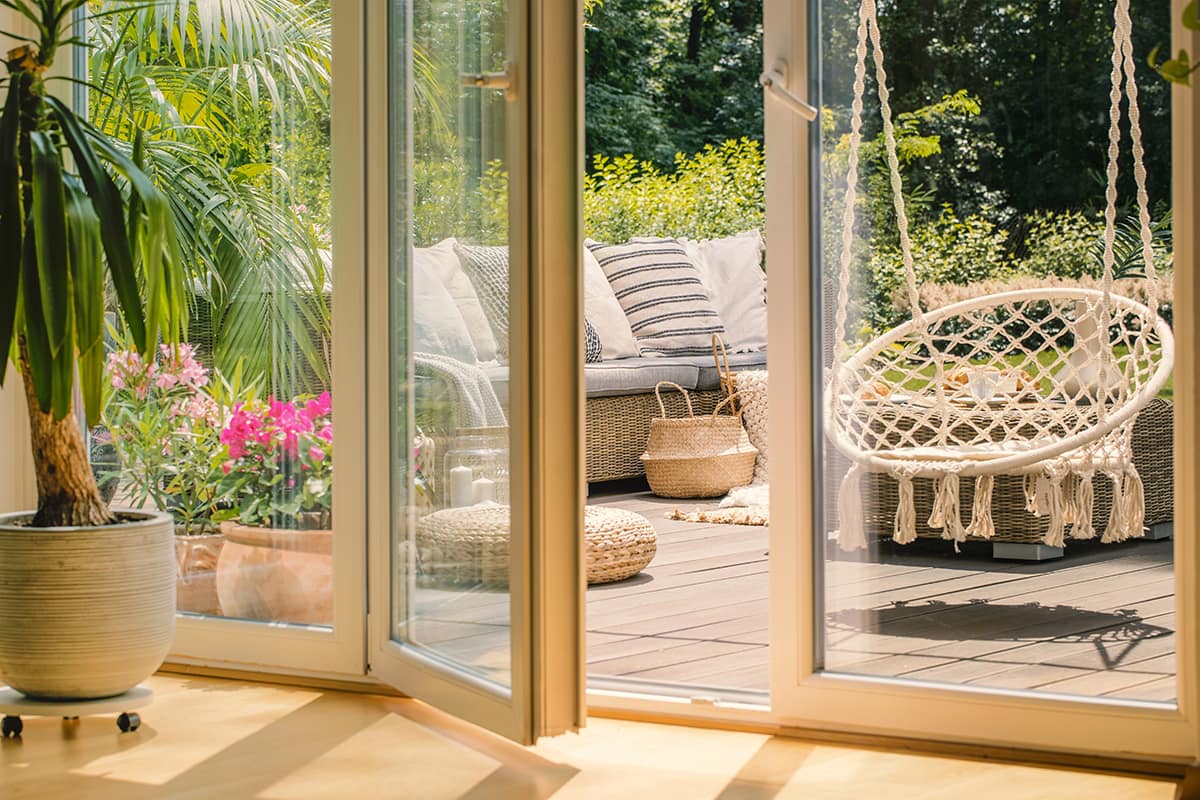In the past, efficiency was not a priority when it came to shopping for the right residential patio door. Times have changed: Most Americans spend a great deal of money maintaining the temperature of their homes. Patio doors are now well-constructed to meet energy-efficiency standards. Choosing cost-effective patio doors can be difficult if you don’t have a clear idea of what you’re looking for.
Door efficiency is often tested and rated by national agencies such as Energy Star and the National Fenestration Rating Council. They are graded based on several areas such as U-factor, visible transmittance, solar heat gain coefficient, and air leakage. Let’s look below at these and other factors you should consider when choosing cost-effective patio doors.
Why Patio Door Efficiency Matters
If you are considering a patio door replacement in your home, efficiency should be near the top of your list of criteria. The reason for this is that doors are a critical element in reducing your energy bills. While it is difficult to pinpoint precisely how much money you will save with a cost-effective patio door, you can reduce your energy bill by 25 to 50 percent monthly.
- There are other benefits of cost-effective patio doors such as:
- State and federal tax credits
- Greater ability to control your home climate
- A more comfortable home environment
- Increased property value
- Protection of your home interior from heat and humidity
- Customizable center-hinge patio doors
- Energy-efficient sliding glass doors
A simple patio door will either contribute to your home efficiency or run up your electric bills and potentially damage items and structures in your home. This is why having the right patio door replacements matters.
Choosing Cost-Effective Patio Door Replacements
When rating patio door replacements, review companies, and government agencies often look at four critical elements, such as:
- U-factor: The U-factor measures how well your patio door can prevent heat from escaping your house. The lower the U-factor number, the higher the door quality. The U-factor range is .020-1.20, with 0.20 being the best rating. So, when choosing a patio door, look for low numbers.
- Visible transmittance: One of the trends in home design today is to allow more natural light into the house to cut down on lighting costs. Patio doors are rated according to their visible transmittance – i.e., how much light they allow into the home. The rating range is 0-1, with 1 being the highest rating. So, look for higher numbers and study the overall design of the patio door.
- Solar heat gain coefficient: One of the biggest challenges during the summertime is preventing heat from entering the home. This can be especially problematic with patio doors. The solar heat gain coefficient measures how much heat the door allows in the room. You want to look for a lower number. The rating range is 0-1.
- Air leakage: One of the reasons why homeowners get patio door replacements is because of air leakage in older models. Look for an air leakage rating that measures how much air the door allows into the house. Again, you want to look for a lower number. Lower numbers indicate better draft prevention. The best air leakage rating is .1, and the worst is .3.
Find the Best Cost-Effective Patio Doors at Master Seal
Are you looking for brand new patio doors? When choosing cost-effective patio doors, look no further than Master Seal. We offer a complete patio door installation in Baltimore, Maryland. Choose from sliding patio doors, center hinged patio doors, and other popular products for your Baltimore home. To find out more about our installation service and products available, contact Master Seal at 855.608.1580. Schedule an in-home estimate with a home improvement contractor in Baltimore today.








